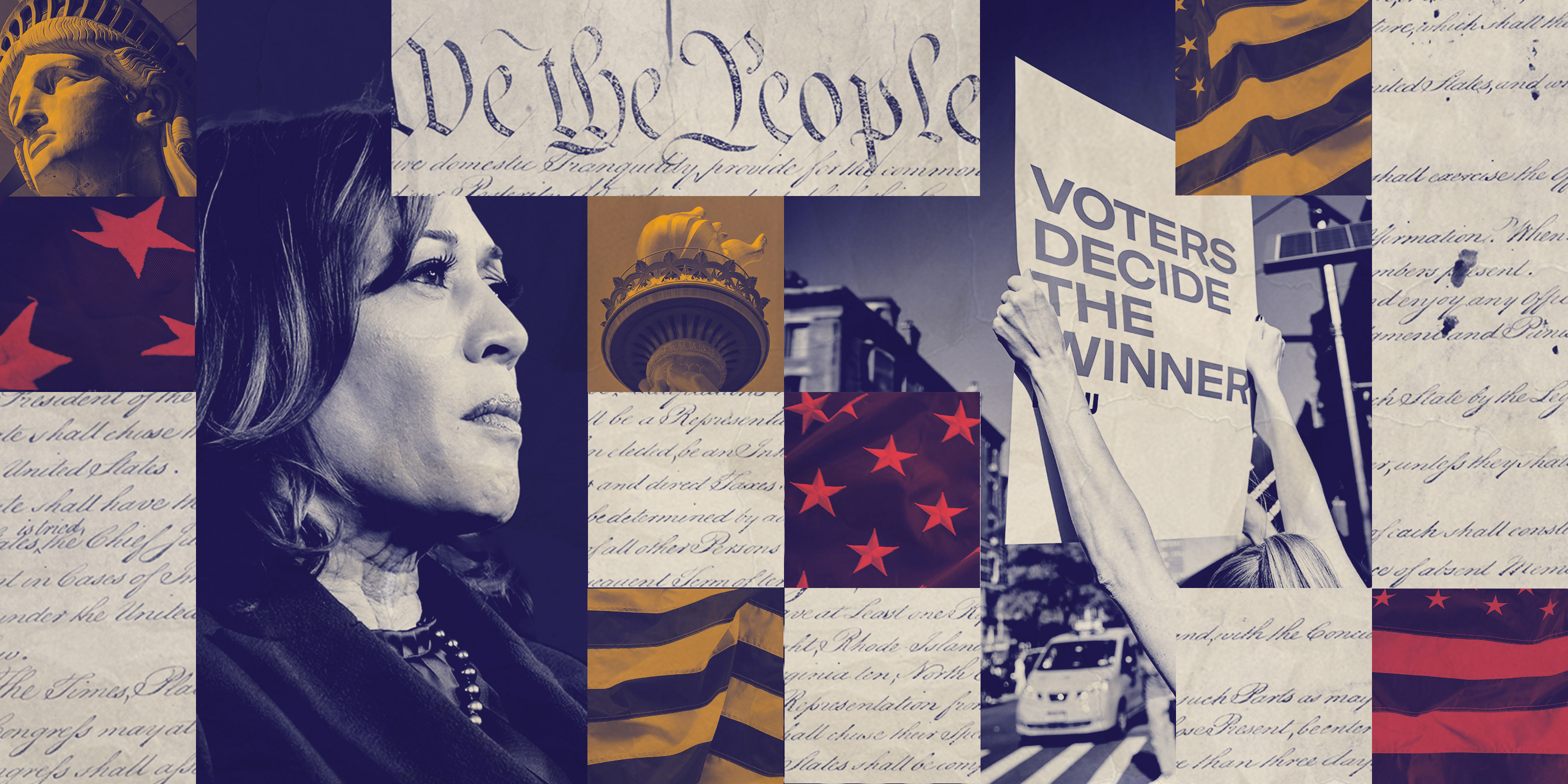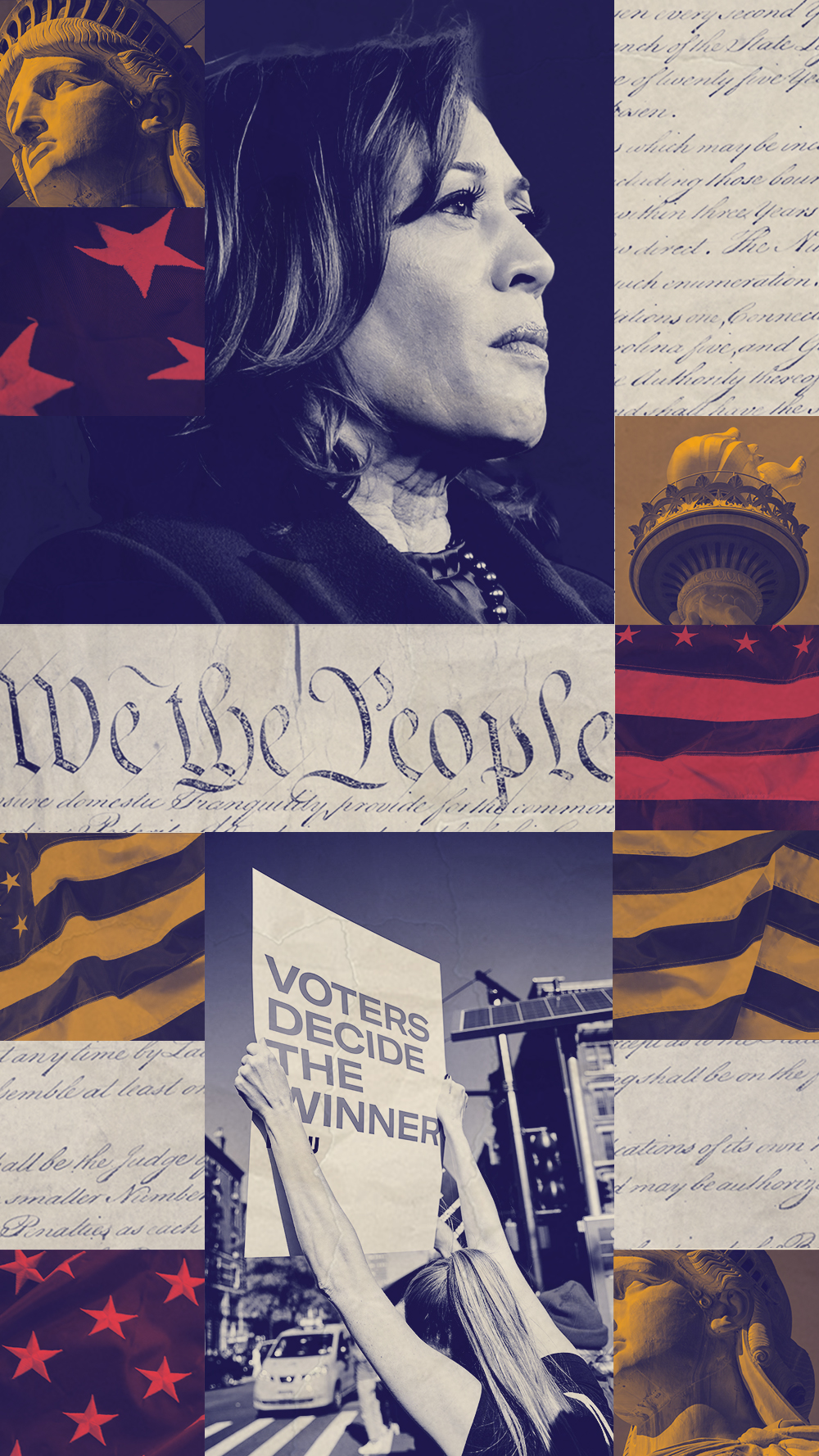How Kamala Harris Can Be a Pro-Voting Rights President


In a moment when hostile state legislators have used unlawful redistricting efforts and discriminatory voting laws to attack our electoral systems, Democratic nominee Vice President Kamala Harris has committed to protecting our democracy.
On the campaign trail, Harris has promised to push for passage of essential federal voting rights protections, including the John Lewis Voting Rights Advancement Act (JLVRAA), the Freedom to Vote Act (FTVA), and the Native American Voting Rights Act (NAVRA). If elected, Harris has the opportunity to build on the Biden-Harris administration’s record of championing measures that increase voting access. The ACLU is determined to hold a Harris-Walz administration accountable for promoting fair representation, preventing discriminatory voting laws, and strengthening our democracy for years to come.
Learn more in our breakdown.
Harris on Voting Rights
The Facts: A Harris-Walz administration must advocate for federal legislation to protect voting rights, specifically passage of the JLVRAA, the NAVRA and provisions of the FTVA. The JLVRAA would restore the landmark Voting Rights Act of 1965 to its fullest strength and undo the harm created by Shelby County v. Holder, in which the Supreme Court struck down the VRA’s core “preclearance” requirement that mandated jurisdictions with long records of racially-discriminatory voting practices seek federal approval before altering their voting laws and practices. The FTVA, if passed, would establish essential voting-access provisions that make it easier for everyone to register and cast their ballots; help safeguard against partisan and racial gerrymandering; increase protections for marginalized voters like those with disabilities and those with prior felony convictions; and establish other much-needed national standards for federal elections. Lastly, the NAVRA is essential to protect Indigenous communities from discriminatory voting practices and address the unique barriers to voting that Native people face.
While the passage of such federal legislation ultimately depends on Congress, if elected Harris is responsible for demanding that Congress act swiftly and boldly. A Harris presidency must also continue to robustly implement Executive Order 14019 on Promoting Access to Voting, which encourages federal agencies to provide nonpartisan voter registration opportunities for all eligible citizens. While the Biden-Harris administration has made laudable strides in implementing this executive order, a Harris-Walz administration must push the federal government to move even quicker to enforce the order’s provisions to the fullest.
In addition, a Harris-Walz administration must advocate for a useful, accurate, and fair census in 2030. This census will determine the allocation of seats in Congress as well as the distribution of billions in public funding until 204o. A Harris-Walz administration should ensure that the Census Bureau is equipped with the tools and resources needed to execute a successful count in 2030, and protected from efforts to manipulate the census.
Why It Matters: The right to vote is the very foundation of our democracy. We are counting on a Harris presidency to build on the Biden-Harris administration’s efforts to protect and expand voting access, ensure an accurate census, and shore up faith in and the strength of our democracy. The presidency’s influence can reinvigorate the effort to restore and fortify federal voting rights legislation that will protect the right to vote for years. A Harris-Walz administration can also demonstrate how every level of government can act now to increase access to voter registration and education.

Harris on Voting Rights
The ACLU stands ready to hold a potential Harris administration accountable to deliver on its promises to protect and expand voting rights.
Source: American Civil Liberties Union
How We Got Here: For years, pro-voting rights work has been stymied by a divided Congress or has been thwarted by partisan efforts to manipulate electoral systems to disenfranchise entire populations of voters, particularly voters of color.
As vice president, Harris has been the face of the Biden-Harris administration’s efforts to expand voting rights, including launching new efforts across federal agencies to offer nonpartisan voter registration opportunities. Harris has also championed efforts to advance critical voting legislation that has been repeatedly introduced across multiple congressional sessions, including the JLVRAA, the NAVRA, and the FTVA.
Our Roadmap: After Donald Trump pushed the “Big Lie“ that the 2020 election was fraudulent, a wave of state-based voter suppression bills were introduced in response to victories by candidates who support civil rights and civil liberties, and who were elected by diverse constituencies. The ACLU challenged many of these laws and, today, we stand ready to go back to court to take on new suppressive laws, policies, and practices that could follow a Harris win. In addition to filing our own lawsuits, we will call on the Department of Justice under a Harris-Walz administration to enforce federal statutory protections of the right to vote to the fullest.
Additionally, the ACLU will work with our partners to pass critical voting rights legislation. Under a Harris presidency, we will continue to testify in support of the JLVRAA, lobby and brief Congress members about the bill’s importance, and educate constituencies on the bill’s impact on voters of color. So that the JLVRAA and other critical voting rights legislation are not blocked in the Senate, the ACLU will double down on its coordinated effort to reform the filibuster.
Lastly, during a potential Harris presidency, the ACLU will continue pressing state and local officials to leverage every available tool to increase access to voting, including by expanding same-day registration, automatic voter registration, and early and mail voting. If elected, Harris must continue efforts to end the denial of equal representation to Washington D.C. residents, and correct the longstanding voting rights injustices people living in U.S. territories face. Finally, as we have in the past, we will engage our organizers and members in a public education campaign on the impact of the census in everyday life and the importance of counting every person, laying the groundwork for the most accurate census in 2030.
What Our Experts Say: “Expanding voting rights is crucial to ensuring every citizen's voice is heard in our democracy. Vice President Harris has promised to address long-standing challenges and enhance access to the ballot for all eligible voters. If she is elected, we will use every tool at our disposal, including litigation, to hold her to these commitments and protect and advance voting rights and fair representation at every level of government.” — Sophia Lin Lakin, director of the ACLU’s Voting Rights Project
What You Can Do Today: As the election approaches, discriminatory election practices continue to impact voters of color, highlighted by a surge in anti-voter measures in recent years. The John Lewis Voting Rights Advancement Act is a crucial step towards ensuring fair and inclusive elections. Add your name to our petition urging Congress to support this vital legislation.
Stay informed
Sign up to be the first to hear about how to take action.
By completing this form, I agree to receive occasional emails per the terms of the ACLU's privacy statement.
By completing this form, I agree to receive occasional emails per the terms of the ACLU's privacy statement.

